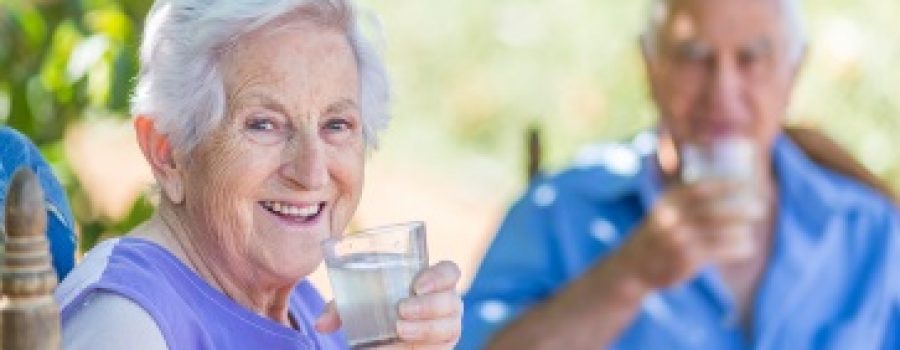We have endured the Corona Virus and now we contend with the summer heat. How do we keep our aging parents from becoming dehydrated and avoiding infections or illnesses as the result? When summer comes, we embrace getting outdoors and being active. However, with Summer activity comes increases in the loss of fluids which need replenished.
How do we know if we are dehydrated? We do not always detect dehydration in our aging loved ones easily. However, there are few quick signs that can signal lack of fluid in your system. First and foremost, if you pinch the skin on the top of your hand and it does not quickly return to normal, that could be a telling sign you are dehydrated. Some other obvious signs include sunken eyes, dry mouth, muscle cramps, dark urine, dizziness, and fatigue. So now what do you do?
6 Tips to Avoid Dehydration with Aging Parents
- Drink More–At the end of the day to avoid dehydration, drink more water. That is as simple as it gets. You need to drink to stay hydrated. Period.
- Suggest Foods with High Water Content–If you worry that your aging parents are not getting enough water, suggest foods they enjoy with high water content. In the summer you have many fruits and vegetables readily available to consume. For example, encourage watermelon, cantaloupe, cucumbers, strawberries, and don’t forget low sodium soups are a great resource of liquids.
- Keep a Water Bottle Handy–You need to keep your beverage around to drink it. I know that seems like a no-brainer, but oftentimes people say, “I am thirsty, but I forgot my water.” Make that water bottle like your purse or wallet and have it with you at all times. Drinking enough fluids also encourages a healthy diet, as many times people think they are hungry and in reality they just need some water to suffice.
- Drink a Full Glass of Water Before Every Meal–Not only should you drink a full glass of water with every meal, but when you take your medications, drink up! Drinking a full glass of water with your medications will help keep you hydrated and make taking medicine a bit easier too.
- Check Your Urine–If your urine is dark, that is often a sign of dehydration. Many caregivers try the rule of thumb to drink enough water so your urine is almost clear by lunchtime. It may not be easy to do some days, but striving for that definitely keeps you hydrated and also helps control cravings.
- Talk to Their Doctor and/or Other Caregivers–Having a conversation with your loved one’s doctor or other caregivers that help with your loved one or parents is very helpful. You can both discuss their general health and make sure they are getting the proper amount of fluids to keep their body functioning at its best. This is especially important if they are taking any diuretics or laxatives.
The bottom line is dehydration can cause many problems down the road. As mentioned above, it can result in dizziness or fatigue which could lead to falls and other issues in health. Aging loved ones with Alzheimers or dementia can see a worsening in their condition if they are dehydrated. Make sure to keep an eye on how much your loved one is drinking to stay hydrated. Need more advice on senior care? Contact Ann at Senior Living Options and let her help guide you. She is an expert in senior care and helping families navigate the road of aging in a graceful and healthful manner.



Leave a Reply
Your email is safe with us.
You must be logged in to post a comment.